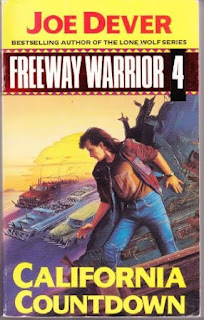Well, here we are at the end of an incredibly productive year where, barring two short holiday-related rests, I kept this very stupid blog more or less continuously updated throughout, produced some personal favourite pieces, even made a few steps towards professionalism with some tweaks such as sorting out the post tags and adding a proper(ish) "About" page, and now have a bumper selection of links to all the at-least-readable things I wrote across 2024 to share with you.
Much of the year's writing came from the perennial subject of "adventure gamebooks from the 1980s", particularly Fighting Fantasy. Right at the start of the year came a little trilogy of articles looking at the 'demo' versions of some of the books that were first published in Warlock magazine and how they compare to the full-length versions of The Warlock of Firetop Mountain, House of Hell and Caverns of the Snow Witch -- a set of pieces which remain quite probably my favourite things I've ever written.
They also inspired some shorter pieces that took a particular interest in anti-cheating traps built into the books, spotlighting Starship Traveller, The Citadel of Chaos, Curse of the Mummy, Kharé -- Cityport of Traps, Masks of Mayhem and The Crimson Tide, as well as an article extensively covering how various different entries in the series included a "time" mechanic, and a comparison of Ian Livingstone's riffing on Mad Max with that of Joe Dever. For more miscellaneous gamebook writing, I also looked at the second of two somewhat lacking adaptations of The Famous Five to the format, a Choose Your Own Adventure book with a surprisingly metaphysical ending and, perhaps a little more tenuously, The Crystal Maze tie-in books.



